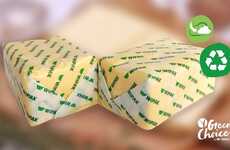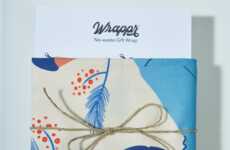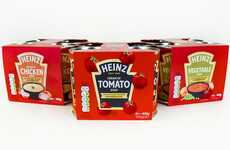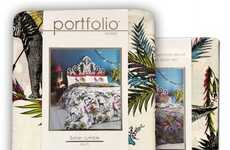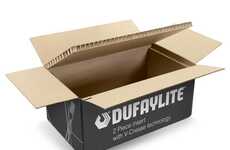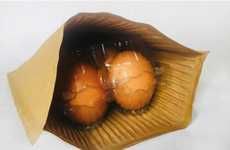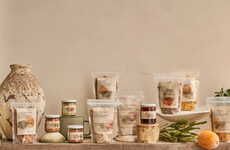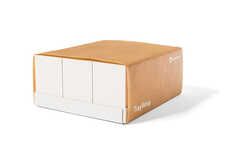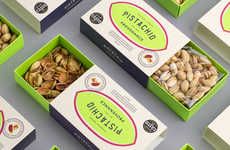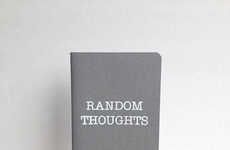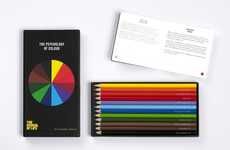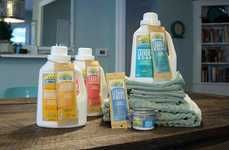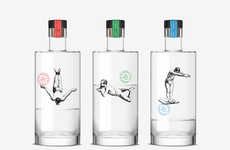
Every Layer of Bee's Wrap is Eco-Friendly and Fittingly Functional
Amelia Roblin — October 8, 2014 — Eco
References: beeswrap & thedieline
There are actually two packaging concepts at play within Bee's Wrap: the product itself and the sleeve that protects it. Stitch Design Co. is responsible for the environmentally conscious envelope and Sarah Kaeck is the creator of the gorgeously green kitchen companion within.
Most excitingly, the Bee's Wrap product is made from organic cotton muslin that's been woven with tree resin, jojoba oil and, of course, beeswax. The latter ingredients give the fabric a natural antibacterial quality and the means to trap in freshness. The unique and slightly sticky material can be folded, rolled and pinched to seal around all sorts of snacks and even edibles in bowls. Gently wash and reuse Bee's Wrappers as an incredibly sustainable alternative to aluminum foil and saran wrap. The different varieties in various dimensions are carefully kept inside of chipboard pouches that have minimal ink applied.
Most excitingly, the Bee's Wrap product is made from organic cotton muslin that's been woven with tree resin, jojoba oil and, of course, beeswax. The latter ingredients give the fabric a natural antibacterial quality and the means to trap in freshness. The unique and slightly sticky material can be folded, rolled and pinched to seal around all sorts of snacks and even edibles in bowls. Gently wash and reuse Bee's Wrappers as an incredibly sustainable alternative to aluminum foil and saran wrap. The different varieties in various dimensions are carefully kept inside of chipboard pouches that have minimal ink applied.
Trend Themes
1. Eco-friendly Packaging - Opportunity to disrupt traditional packaging methods by creating sustainable alternatives using organic materials like cotton muslin woven with tree resin and beeswax.
2. Reusable Food Wraps - Chance to revolutionize the food wrapping industry by introducing reusable wraps made from natural materials that offer antibacterial properties and can be molded to seal snacks and food in bowls.
3. Minimal Ink Packaging - Potential to disrupt the printing industry by utilizing chipboard pouches with minimal ink application as a sustainable and eco-friendly packaging solution.
Industry Implications
1. Packaging - Opportunity to innovate and provide eco-friendly packaging solutions to meet the growing consumer demand for sustainable products.
2. Food Wrapping - Potential to revolutionize the food wrapping industry by introducing reusable and environmentally friendly wraps as an alternative to traditional aluminum foil and plastic wrap.
3. Printing - Chance to disrupt the printing industry by implementing minimal ink application techniques in packaging, reducing environmental impact and materials used.
6.2
Score
Popularity
Activity
Freshness

